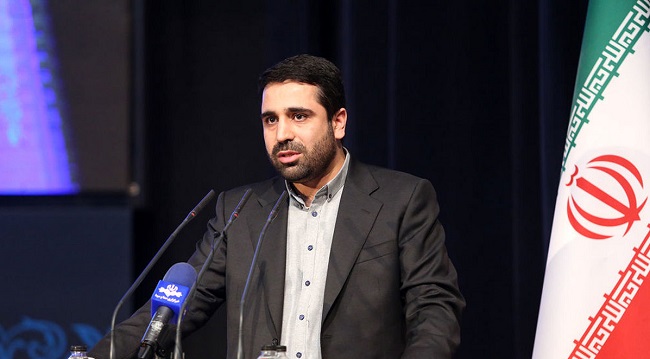The head of the National Center for Cyberspace said: “The general policy of the system is to develop the digital economy and increase private sector activity in this field. In this regard, the responsibility of the private sector is greater than that of the public sector.”
The General Policy of the System is to Develop the Digital Economy
Seyed Mohammad Amin Aghamiri, head of the National Center for Cyberspace, stated during the third IT Day event: “What was highlighted last year is that if we do not upgrade our regulatory frameworks, we cannot proceed at a good pace.”
He added: “If we discuss digital transformation and the development of the digital economy in another language, it should be noted that the general policy of the Islamic Republic is to develop the digital economy and increase the private sector’s activity in this area. Unlike other developments where governmental sectors and institutions played a more prominent role, in this area, the main pressure and effort rest on the private sector and those gathered here and in other groups. The issue is that a fundamental change is occurring in our living environment.”
Aghamiri elaborated: “We used to live in society, go to school, and conduct our business and economic activities. However, today, a significant part of these activities has a dual presence in cyberspace. In a few years, some traditional aspects of our lives may disappear entirely and transition to cyberspace. Various sectors have the potential to see their jobs completely change. If we cannot bring changes in the country’s programs in terms of services and content, we will not be able to keep pace with these changes and reach the necessary level.”
He continued: “Nowadays, a significant portion of people’s cultural content is shaped in cyberspace and is well-received by users. Therefore, if we can expand these content services, we will be pioneers in the field of digital transformation and the development of the digital economy. Three issues need to be examined in this area. First is the conflict between the public and private sectors in parallel tasks, which has been repeatedly emphasized by the country’s officials, and everyone agrees on this. The second issue, which creates more challenges, is the competition between the traditional private sector and the new private sector. To address this challenge, we need to focus on discourse-building and legislation to ensure equal competition between these two sectors.”
The head of the National Center for Cyberspace noted: “The last issue is the new and innovative solution emerging in this industry, which involves the management of the modern private sector by the nascent private sector. If we use the self-regulation literature of active players in this area, we can speed up the resolution of challenges. We have taken the first step in this area and hope to extend the experience gained here to other sectors.”
He added: “The National Center for Cyberspace has drafted initial regulations for platform regulation, which will be announced once approved. The Supreme Council of Cyberspace has a resolution for revenue-sharing of content and services produced in cyberspace. The notification process is underway, and once issued, service and content developers can benefit from the fees users pay for their services and content. This action will create a new economy that will make some high-risk activities today economical and low-risk.”
The secretary of the Supreme Council of Cyberspace, regarding his suggestions to the Minister of Communications in the 14th government, said: “We have a challenging path ahead in the field of technology. If we cannot synchronize our content and service production speed with other countries, we will face backwardness and challenges. Part of the path is in the hands of the Minister of Communications and another part with the Minister of Industry, Mines, and Trade, and even the Minister of Culture. Hopefully, a cohesive team will be formed in the government to seriously advance these issues.”
Aghamiri also addressed the topic of filtering and its resolution: “Our solution for unblocking certain platforms and social networks was to approve a resolution last February. This solution included allowing a group from the private sector to negotiate with the service provider that is blocked to provide services through an intermediary. Another part is enabling some companies to create accessibility to blocked platforms using existing tools. Several platforms are currently being tested in this area, and we hope the next Minister of Communications will support this path.”




No Comment! Be the first one.